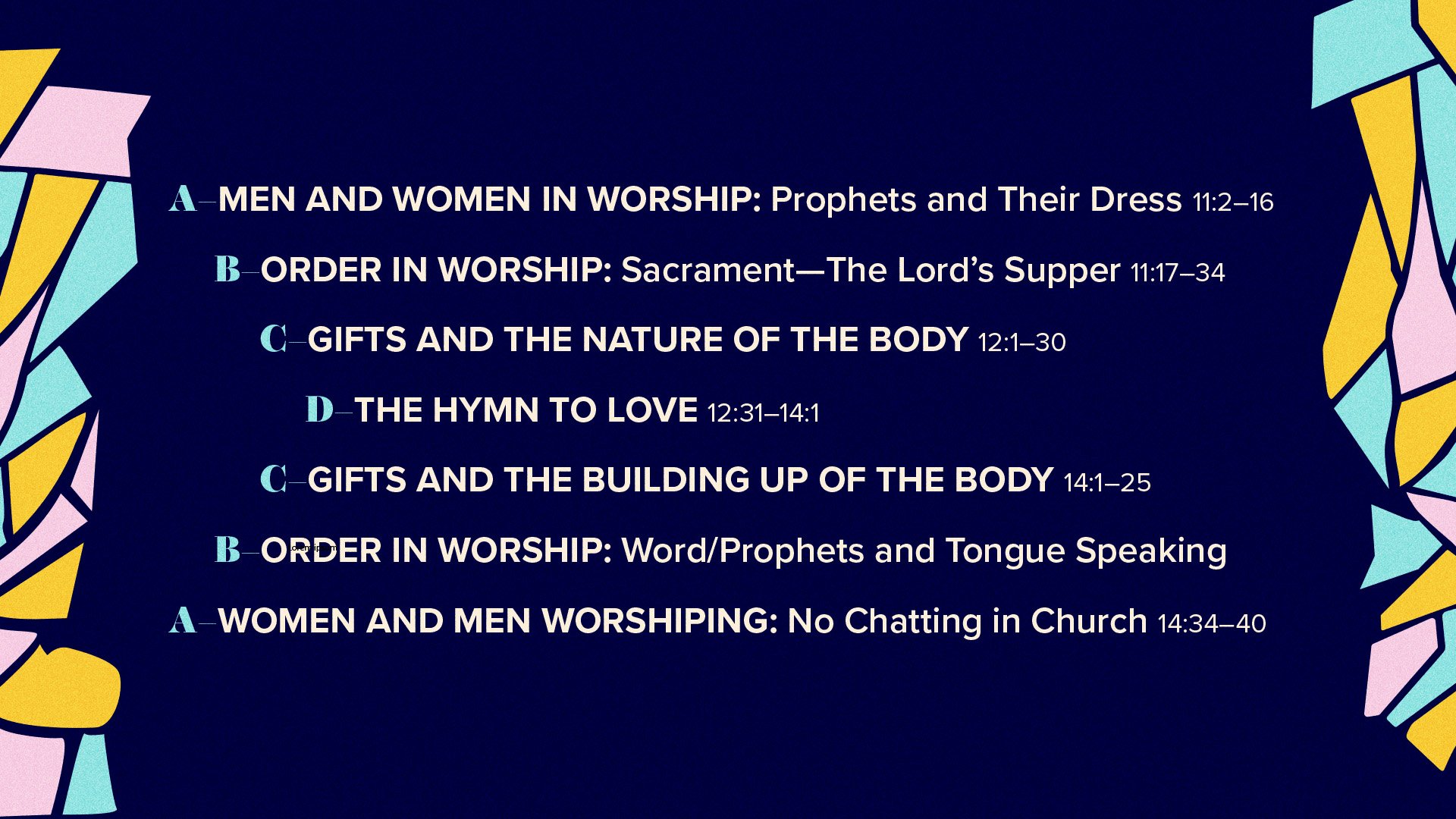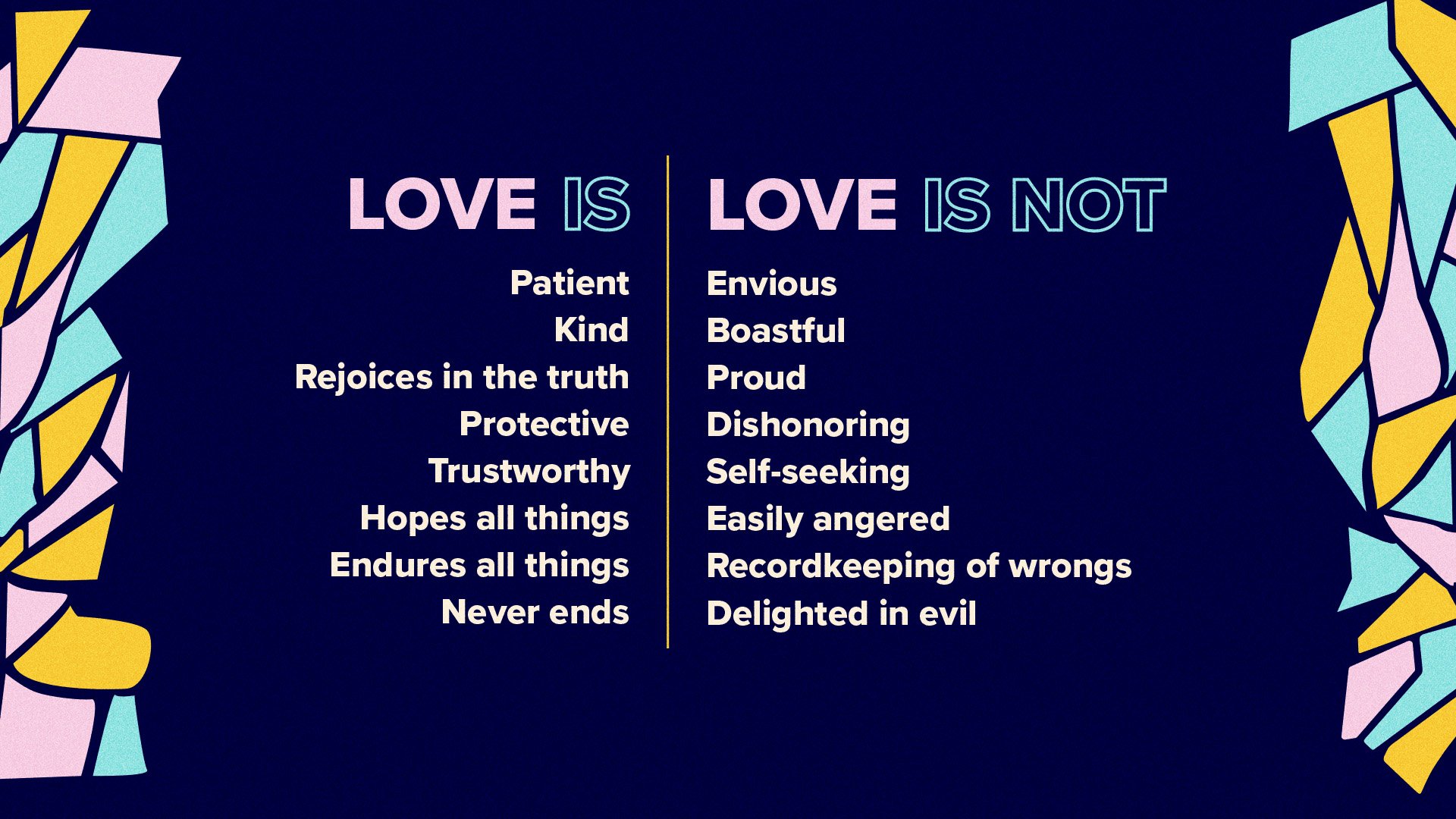Defining Love
In a world often marred by division and discord, love stands as the universal language that transcends barriers and binds us together. It's a force that drives us, motivates us, and gives our lives profound meaning. Within the realm of faith, love holds a position of unparalleled importance, serving as the cornerstone upon which our beliefs and actions are built. In this blog we take a look at arguably the greatest love chapter of the Bible, 1 Corinthians 13, delving deep into its wisdom and uncovering the profound truths it holds about the nature of love.
Understanding the Literary Structure: The Chiasm
Before delving into the heart of 1 Corinthians 13, it's crucial to grasp its intricate literary structure. This chapter is nestled within a broader narrative spanning 1 Corinthians 11 to 14, intricately woven together in a chiastic form. Like a mirror reflecting interconnected themes, this structure reveals a profound truth: love permeates every facet of Paul's discourse. From discussions on order in worship to the nature of spiritual gifts, love emerges as the unifying thread that binds together the diverse elements of Christian life. It's a reminder that love isn't merely a sentiment but the very essence of our worship and community life.
Love: The Eternal Virtue
As we unravel the verses of 1 Corinthians 13, we encounter a profound revelation of love's nature. Love isn't just a fleeting emotion or a momentary act of kindness. It's a steadfast commitment, an unwavering dedication to the well-being of others. It's patient, enduring, and unfailingly kind, bearing all things and enduring all things. Yet, it's also a mirror that reflects our growth and shortcomings. It challenges us to confront our flaws, to relinquish pride and selfishness, and to embrace a higher standard of love that transcends mere sentimentality.
Exploring Love's Reach and Impact
Beyond the confines of personal relationships, love extends its reach into the broader tapestry of human existence. It's a force that compels us to extend compassion to the marginalized, to stand up for justice in the face of oppression, and to build communities rooted in empathy and understanding. Love isn't passive; it's a catalyst for change, inspiring acts of courage and selflessness that have the power to transform lives and reshape societies. In embracing love as both a virtue and a calling, we become agents of hope and healing in a world desperately in need of both.
In the grand tapestry of faith, hope, and love, it's love that emerges as the supreme virtue. It's the driving force behind our actions, the catalyst for change, and the beacon of hope in a world shrouded in darkness. As we journey through life, let us hold fast to faith, let us cling to hope, but above all, let us embody love in all that we do. For in the end, it's love that binds us together, sustains us through trials, and leads us into the embrace of the divine. As we strive to live out the profound truths of 1 Corinthians 13, may our lives become a testament to the transformative power of love.
Blog adapted from April 14, 2024, message by Minister Mark Ashton



